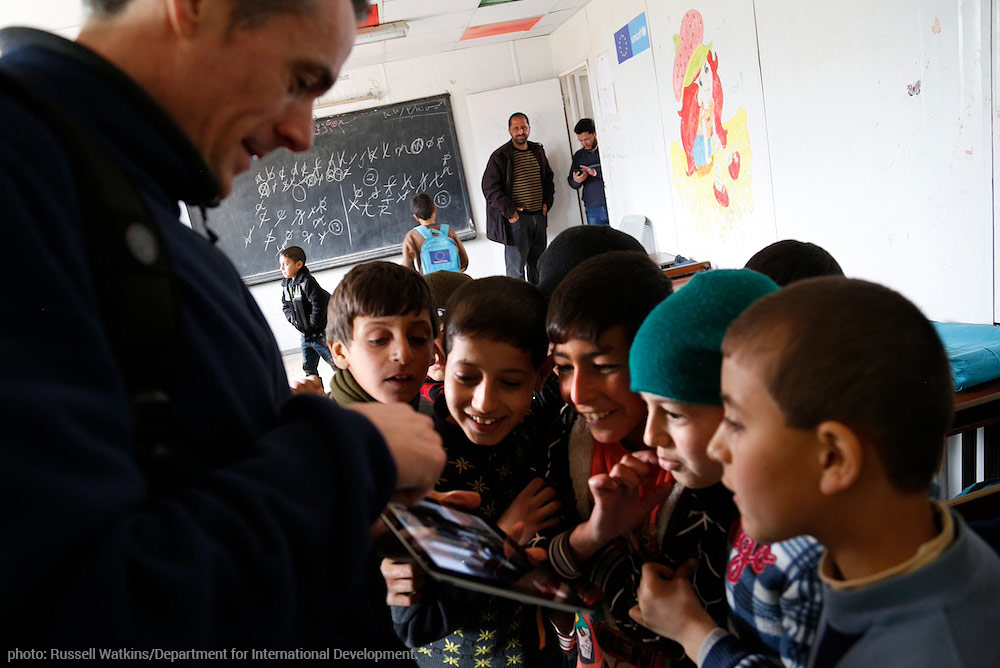Two weeks ago, I attended the United Kingdom Forum for International Education and Training (UKFIET) annual conference in Oxford. This gathering brought together a wealth of research on teachers, as well as new insights on how to support, develop and motivate the education workforce – recommendations guided by rigorously collected and very promising evidence.
The UKFIET gathering left me with two questions:
- Given our increasing understanding about how children learn and their changing needs, labour market demands, and the potential of technology, are we sufficiently considering what the role of the teacher needs to look like come 2030?
- Could we support and motivate teachers by releasing them from non-teaching duties, such as data collection and administration, and shifting some of these parallel responsibilities to a diversified education workforce?
In meeting with a colleague working on transforming the health worker training approach, I was reminded that education has a lot to learn from innovations in the health sector and how it has effectively professionalised support roles. For example, in Chile, every doctor is supported by 4.5 nursing and other health professionals offering support. And yet for every teacher, there are only 0.3 support staff (OECD-Talis data (2013); WHO data, (2015)).
This reminder is a helpful segue to hopeful action. The Education Commission is about to launch the Education Workforce Initiative which aims to:
- Produce an Education Workforce Report for policy-makers to inform education workforce reform. This will be accomplished by highlighting evidence and lessons from in-depth case studies and promising innovations exploring how education workforce reform has been implemented. Lessons from other sectors, such as the health workforce, will be included.
- Establish a high-level working group, chaired by Commissioner Ju-Ho Lee alongside representatives from Education International, governments open to reform, and education, health and technology experts from around the world. The group will develop an updated vision for the roles of the teacher and education support personnel within the education workforce. In parallel, the group will work with countries open to reform to co-develop workforce design options, reinforce existing intrinsic motivation and practice, and define and strengthen leadership at school in order to address specific country needs.
By establishing collaboration between experts and policy-makers through the Education Workforce Initiative, we hope to learn from promising case studies and catalyse new thinking to support policy-makers ready to make bold decisions to improve the effectiveness and efficiency of their education workforce. In doing so, leaders will stand better equipped to meet the 21st Century needs of all learners.
Amy Bellinger is the Consultant, Strategic Initiatives at the Education Commission.


This initiative is a good one and I the kind of change we need in our educational system. Let’s take Nigeria as a case study for instance, considering the first question you asked about putting into consideration the ever changing needs of the students, the requirements of the labour market and advancement in technology these are the factors to consider when making decisions as regards education in all systems.
The lack of teachers in rural communities in particular will make the proposal challenging to implement.
The failure of Education commission in these type of mega projects is the wrong approach they take in there implementation. The approach has to be bottom up and not top down. the data has to be collected from the countries from the schools, from the teachers and that data will indicate which areas need support. Just giving funding and not following the proper procedures and not having the know how of the specific information and knowledge on teaching and learning and teacher education is the reason that we see major failures faced by these kind of commissions. They say if you want different results then do things differently?
Funding is just one part of our proposed recommendations, which are laid out in the Learning Generation report (report.educationcommission.org). Another major component is all about working with the local country leadership to establish clear and innovative education sector plans with a focus on measurable results.
With the Education Workforce Initiative, we will indeed be collecting data in collaboration with local governments in 3 focus countries- Ghana, Sierra Leone, and Vietnam. You might be interested to learn more in our initial background research paper.